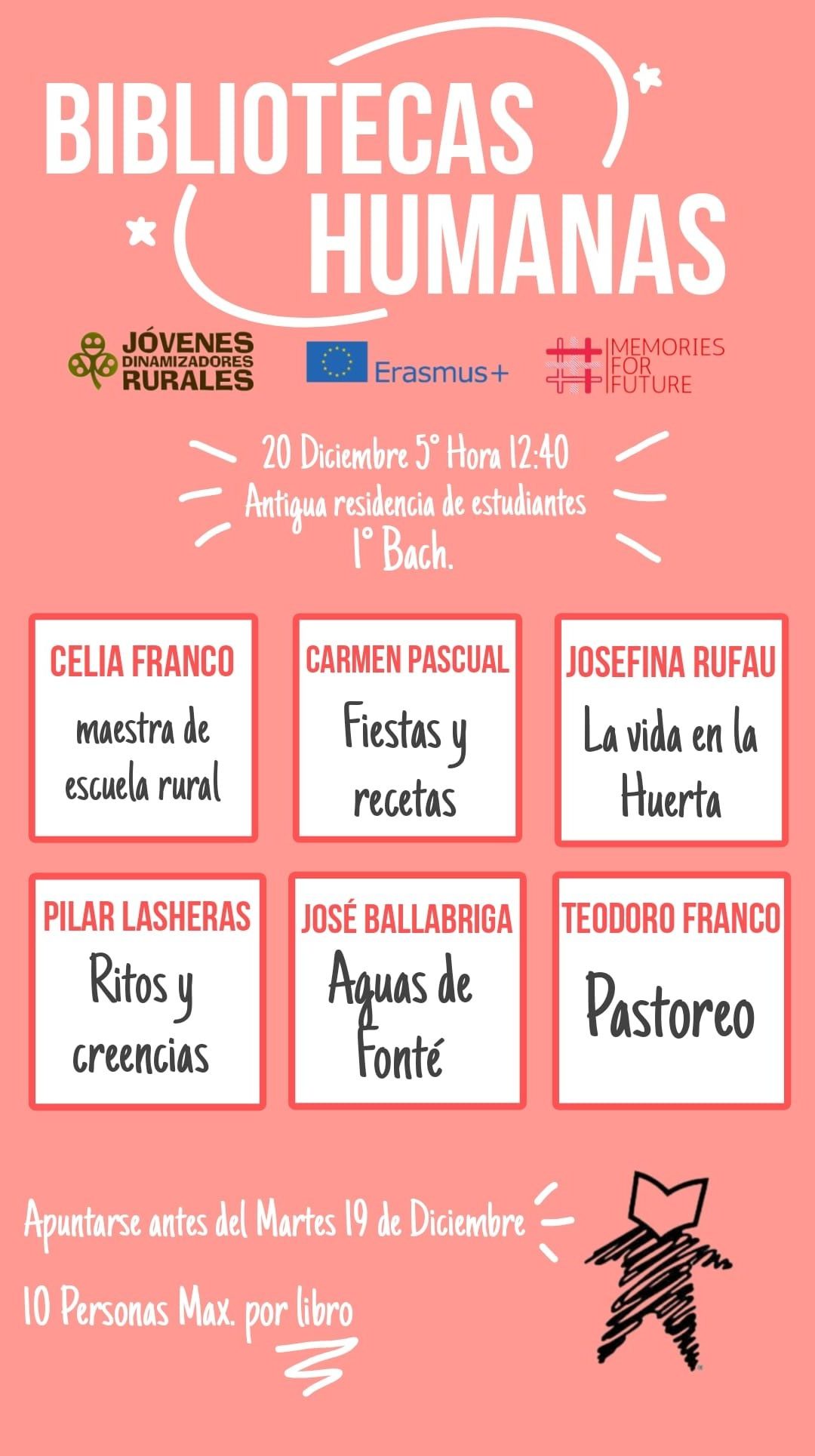
21 Dic BIBLIOTECAS HUMANAS PARA PRESERVAR EL PATRIMONIO INMATERIAL
Debutamos!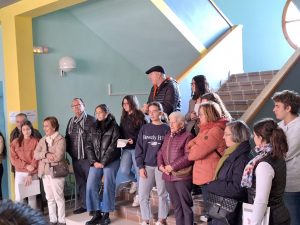
Después de 4 meses de reuniones, formación internacional, presentaciones de proyecto, charlas con nuestros mayores y coordinación con centros educativos, hoy hemos organizado nuestra primera biblioteca humana.
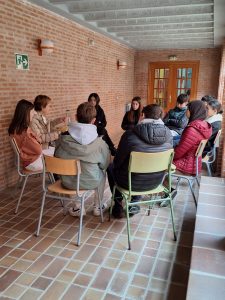 Ha sido en el @iesmardearagon con alumnado de 1°de bachillerato, y con 6 libros muy especiales.
Ha sido en el @iesmardearagon con alumnado de 1°de bachillerato, y con 6 libros muy especiales.
Hemos escuchado historias increíbles sobre maestras rurales, ritos y creencias, sobre el oficio del pastoreo y la vida en la huerta. Hemos saboreado en nuestra imaginación las recetas más sabrosas de hace 60 años y hemos viajado hasta las aguas termales de Fonté.
Pilar Lasheras, profesora en la Escuela de Adultos de Caspe, nos ha contado su libro «Ritos y Creencias» , un relato que recopila dos historias religiosas muy arraigadas en la localidad. Pilar, ya participó en el curso de formación sobre patrimonio cultural inmaterial, realizado para entidades el pasado mes de mayo: » Es un proyecto muy interesante, tanto el trabajo intergeneracional como la recuperación y transmisión del patrimonio cultural inmaterial».
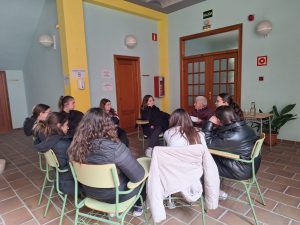 «He aprendido mucho sobre cómo era la Escuela hace 50 años. En algunas cosas hemos evolucionado mucho pero en otras no tanto! Había más compañerismo y cooperación antes que ahora» Nos cuenta una de joven lectora del libro «Maestra de Escuela Rural» contado por Celia Franco.
«He aprendido mucho sobre cómo era la Escuela hace 50 años. En algunas cosas hemos evolucionado mucho pero en otras no tanto! Había más compañerismo y cooperación antes que ahora» Nos cuenta una de joven lectora del libro «Maestra de Escuela Rural» contado por Celia Franco.
El tercer libro de esta biblioteca, «Aguas de Fonté» ha sido relatado por José Ballabriga, un hombre que vivió su infancia en una finca cercana al Balneario de Fonté, un espacio natural donde fluían aguas con propiedades curativas.
En otro rincón de nuestra biblioteca hemos tenido a Carmen Pascual, abuela de una de nuestras jóvenes bibliotecarias, con el libro «Fiestas y Recetas» relacionado con gastronomía y momentos lúdicos en nuestra localidad en los años 40 y 50.
Josefina Rufau nos ha contado como era «La Vida en la Huerta»: Juegos, canciones, familia, trabajo, fiestas… Un sinfín de curiosidades sobre la vida en el campo.
También hemos tenido una historia sobre el oficio de «El pastoreo», con Teodoro Franco. Nos ha contado como era la vida del pastor hace 40 años, mucho más difícil que hoy en día.
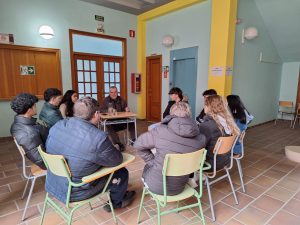
El grupo de jóvenes bibliotecarios está muy satisfecho con el resultado de esta biblioteca » Hemos trabajado mucho este último mes, tanto en la parte del contenido de las bibliotecas: contactar con los libros, entrevistarnos con ellos, grabar los audios, acompañarles en esta biblioteca… y tambien en la parte organizativa: buscar el espacio, hablar con los profesores del Instituto para organizar la actividad con el alumnado de 1º Bachillerato, montar y desmontar… pero el resultado ha merecido la pena, estamos muy contentos» nos cuentan Pablo y Sonia.
Una mañana enriquecedora, diferente y sobre todo, comprometida con el patrimonio inmaterial de Caspe.
Habrá más libros, más historias, más lectores y más espacios para compartir.
………………………………………………………………………………………………………………………………………………………………………..
Let’s Start!
After 4 months of meetings, international training, project presentations, talks with our elders and coordination with schools, today we have organised our first human library.
It has been in hight school in Caspe, with students of 1st baccalaureate, and with 6 very special books.
We have listened to incredible stories about rural teachers, rites and beliefs, about shepherding and life in the orchard. We have tasted in our imagination the most delicious recipes of 60 years ago and we have travelled to the thermal waters of Fonte.
Pilar Lasheras, teacher at the Caspe Adult School, has told us about her book «Ritos y Creencias» (Rites and Beliefs). a story that compiles two religious stories deeply rooted in the town. Pilar has already participated in the training course on intangible cultural heritage, held for organisations last May: «It is a very interesting project, both the intergenerational work and the recovery and transmission of intangible cultural heritage.
Josefina Rufau told us what «Life in the Huerta» was like: games, songs, family, work, festivals… An endless number of curiosities about life in the countryside.
The third book in this library, «Aguas de Fonté» was narrated by José Ballabriga, a man who spent his childhood on a farm near the Fonté Spa, a natural area where waters with curative properties flowed.
«I have learned a lot about what the school was like 50 years ago. In some things we have evolved a lot but in others not so much! There was more companionship and cooperation before than now», says a young reader of the book «Maestra de Escuela Rural» told by Celia Franco.
In another corner of our library we were listenint to Carmen Pascual, grandmother of one young librarian, with the book «Fiestas y Recetas» related to gastronomy and recreational moments in our town in the 40s and 50s.
We also had a story about the profession of «Shepherding», with Teodoro Franco. He told us what life in the pasture was like.
The group of young librarians is very satisfied with the result of this library «We have worked a lot this last month, both in the content of the libraries: contacting the books, interviewing them, recording the audios, accompanying them in this library… and also in the organisational part: finding the space, talking to the teachers of the hight School to organise the activity with the students, setting up and dismantling… but the result has been worth it, we are very happy» Pablo and Sonia told us.
An enriching morning, different and above all, committed to the intangible heritage of Caspe.
There will be more books, more stories, more readers and more spaces to share.



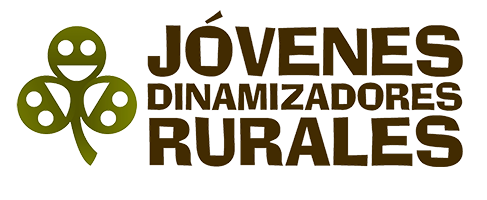



No Comments